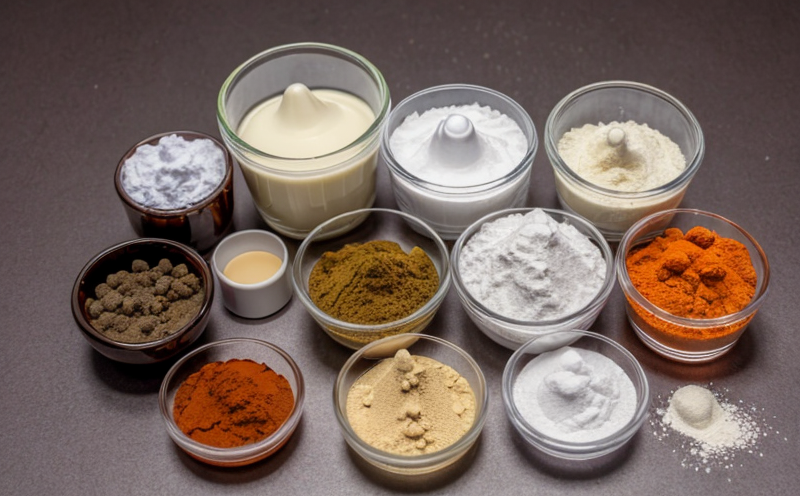Temperature Stress Viscosity Stability Testing
In pharmaceutical testing, excipients and formulation ingredients play a crucial role in ensuring product stability, efficacy, and safety. Temperature stress viscosity stability testing is essential for evaluating the physical properties of these components under various temperature conditions to ensure they meet regulatory standards and perform reliably over time.
The primary objective of this test is to assess how excipients or other formulation ingredients behave when exposed to extreme temperatures that mimic real-world storage and use conditions. This information is vital for quality managers, compliance officers, R&D engineers, and procurement professionals who must ensure the integrity and safety of pharmaceutical products.
Viscosity stability testing under temperature stress helps identify potential issues such as gelation, crystallization, or degradation, which could affect the flowability, solubility, or overall performance of excipients in drug formulations. By understanding these properties at critical points during development, manufacturers can optimize formulation design and ensure that their products meet stringent regulatory requirements.
Testing is conducted using a variety of techniques tailored to specific excipient types. For example, polysaccharides may exhibit different behaviors compared to synthetic polymers when subjected to temperature variations. This underscores the importance of conducting comprehensive tests on each ingredient type to capture all relevant data points accurately.
The process typically involves preparing samples according to specified protocols, exposing them to controlled temperatures over defined periods, and then measuring changes in viscosity using appropriate instruments like rheometers or viscometers. Data collected during these experiments provides insights into the thermal stability of excipients, helping developers make informed decisions about ingredient selection and formulation adjustments.
Understanding temperature stress effects on viscosity is particularly important for pharmaceutical companies because it directly impacts drug product performance throughout its lifecycle—from initial development through manufacturing and storage to eventual administration by patients. Properly conducted tests ensure that excipients remain effective under varying environmental conditions, thereby enhancing overall product quality and reliability.
To summarize, temperature stress viscosity stability testing serves as a critical tool for ensuring the robustness of excipient performance across diverse environments. Through meticulous evaluation of physical properties, this service supports pharmaceutical professionals in meeting industry standards while minimizing risks associated with suboptimal ingredient choices or improper formulation practices.
Why It Matters
The results from temperature stress viscosity stability testing hold significant implications for several key areas within the pharmaceutical sector:
- Regulatory Compliance: Ensures adherence to international standards such as USP, EU regulations, and other relevant guidelines.
- Product Stability: Identifies potential issues early in development stages, allowing for necessary adjustments before commercial release.
- Patient Safety: Guarantees that excipients do not undergo harmful transformations during normal usage conditions.
- Supply Chain Efficiency: Minimizes the risk of supply disruptions caused by ingredient instability or degradation during transit.
- Cost Management: Reduces unnecessary costs related to rework, recalls, and extended product development timelines.
By investing in thorough testing protocols like temperature stress viscosity stability tests, pharmaceutical manufacturers can significantly enhance their competitive advantage while upholding the highest standards of quality assurance.
Scope and Methodology
| Parameter | Description | Method |
|---|---|---|
| Sample Preparation | Excipients are prepared according to the manufacturer's specifications or as per agreed-upon conditions. | N/A |
| Temperature Range | The sample is subjected to a range of temperatures, typically between -40°C and 120°C, depending on the excipient type. | Thermocycler or other appropriate equipment. |
| Time Duration | Exposure times vary based on the specific excipient being tested but generally range from several days to weeks. | Controlled environment chambers. |
| Data Collection | Viscosity measurements are taken at specified intervals throughout the testing period using rheometers or viscometers. | Rheometer or Viscometer. |
This methodology ensures accurate and reliable results, which are essential for making informed decisions regarding excipient selection and formulation design. The table above outlines some of the key parameters involved in conducting temperature stress viscosity stability tests.
Quality and Reliability Assurance
- Standard Operating Procedures (SOPs): Adherence to established SOPs guarantees consistent and repeatable results across multiple trials.
- Calibration: All testing equipment is regularly calibrated against known standards to maintain accuracy.
- Data Validation: Data collected during tests undergo rigorous validation processes to ensure its integrity and reliability.
- Peer Review: Results are reviewed by independent experts within the company to verify their validity before reporting.
- Documentation: Comprehensive documentation supports every step of the testing process, facilitating reproducibility and traceability.
These practices contribute significantly to maintaining high levels of quality assurance throughout the entire testing procedure. They also help build trust between clients and laboratories by demonstrating a commitment to excellence in service delivery.





